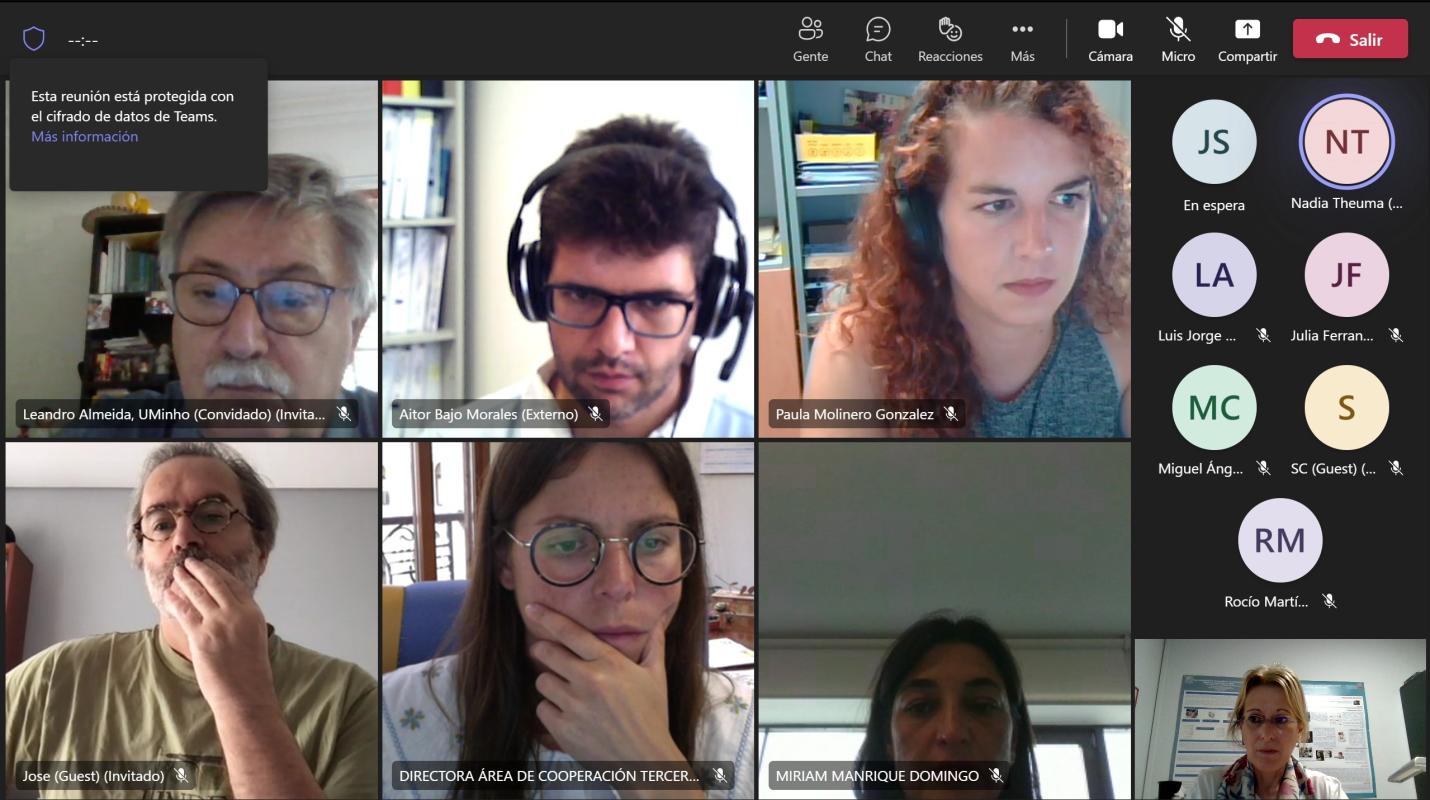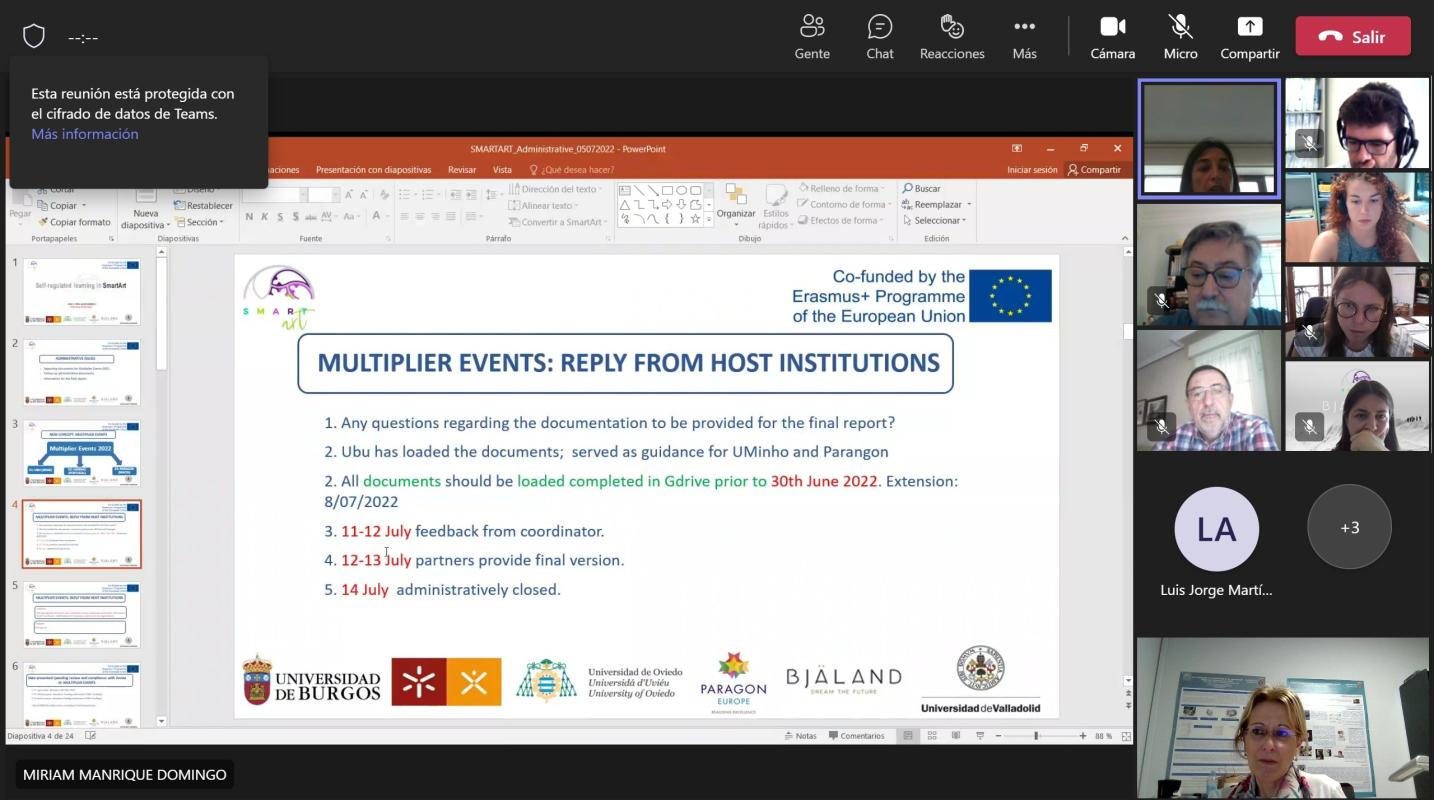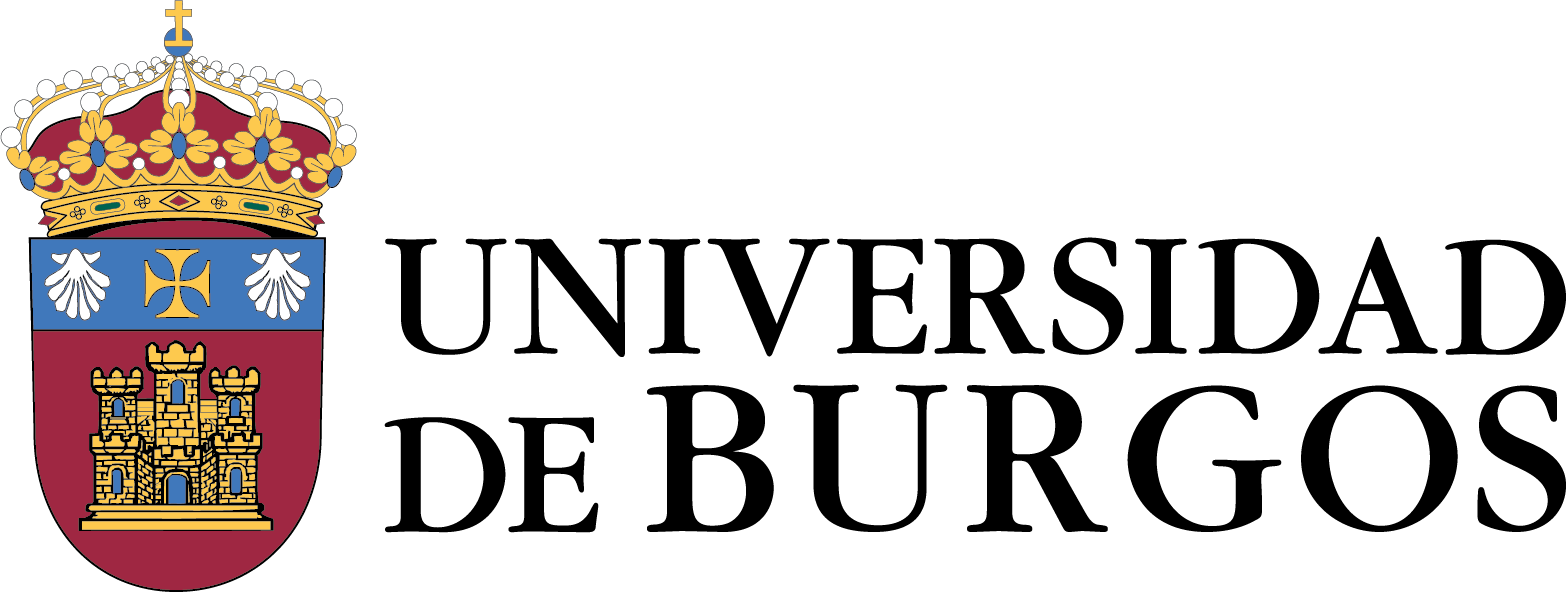SmartArt has developed six intellectual products
11 Jul 2022

The members of the strategic partnership of the Erasmus+ SmartArt Project celebrated the final meeting of the project that has developed six intellectual products in collaboration with UNIOVI and showed their satisfaction for the high level of performance, the success of dissemination and the multiplier events of the European project, which was born with the aim of enhancing the teaching of Art History in virtual learning environments and fostering the dissemination of heritage.
Self-Regulated Learning in SmartArt (SmartArt) is an interdisciplinary and innovative project coordinated by the University of Burgos and focused on the generation of new ways of teaching Art History through the use of new technologies. The project focused on the design of an intelligent virtual learning classroom aimed especially at adults and the development of a virtual environment. With self-regulated and personalised learning tools. These tools include different hypermedia resources (avatars, automatic feedback, records of learning patterns, etc.).
The intellectual products developed in this project are, firstly, the Intellectual Product (IO1) related to the study of the origins of monasteries in Europe. This product is part of the dissemination of European cultural heritage and is available in spanish (PDF 17,6MB), english (PDF 6,5MB) y portuguese (PDF 5,5MB).. This product is aimed at teaching adults in non-formal education. In addition, several intellectual transfer products (IOT1) have been developed, on the same topic but adapted to the learning of children in pre-school and primary education (3-12 years old). IOT1 is available in spanish (PDF 4,3MB) y en english (PDF 14,9MB).
Three more products have also been developed to transfer-enrich the methodology of self-regulated learning based on the use of avatars and gamification to other branches of knowledge such as Neuropsychology in formal teaching aimed at university students, IOTE-Neuropsychology, in spanish (PDF 17,6MB) and in english (PDF 22,5MB),, and STEM education, aimed at students of Compulsory Secondary Education, specifically for the learning of physics. IOTE-STEM, in spanish (PDF 8,2MB) and in english (PDF 7,6MB).
In addition, another transfer-enrichment product has been developed, IOTE-Escultura Clásica, aimed at adults, which deals with Classical Sculpture, available in spanish (PDF 17,3MB) and Portuguese.
The researchers have developed a Virtual Learning Environment (VLE), in which the intellectual products have been implemented, and a Manual of operation of the VLE, available in spanish (PDF 1,1MB) and in english (PDF 1,1MB). Access to the VLE can be requested by emailing srlsmartart@gmail.com . All the materials are open access and are available on the project website in the Results section.
 Likewise, UMINHO has developed an intellectual enrichment product on "How to communicate science" which comprises 6 modules and is presented in web mode and Paragon has developed an intellectual enrichment product on the Renaissance and Baroque in Malta, which comprises 6 units and will soon be available on the project's website in English, Maltese, Portuguese and Italian. With the intervention of the University of Valladolid, a WordPress-based platform has been developed for the dissemination of the SmartArt learning methodology aimed at university students in Education degrees.
Likewise, UMINHO has developed an intellectual enrichment product on "How to communicate science" which comprises 6 modules and is presented in web mode and Paragon has developed an intellectual enrichment product on the Renaissance and Baroque in Malta, which comprises 6 units and will soon be available on the project's website in English, Maltese, Portuguese and Italian. With the intervention of the University of Valladolid, a WordPress-based platform has been developed for the dissemination of the SmartArt learning methodology aimed at university students in Education degrees.
The meeting also discussed the results of the UBU multiplier events, UMINHO and Paragon. More than 150 professionals from the fields of university, primary and secondary education from Spain, Portugal, Malta and Germany participated in these events. All the events have been evaluated by the participants with a high degree of satisfaction regarding the organisation and the quality and usability of the intellectual products developed in SmartArt.
During the meeting, administrative and financial aspects of the project were addressed, and the sustainability plan of the project was discussed, which focuses on the production of reports and scientific publications (articles and book chapters), alliances with associations and training centres for conferences and workshops.
The final meeting of the SmartArt project was attended by UBU professor Sáiz Manzanares, coordinator of the project, and Miriam Manrique, Head of the Science and Technology Section of the OTRI. Professors Leandro Almeida, Joana Casanova and José Alberto Lencastre, from UMINHO; Professor Rebeca Cerezo Menéndez, from UNIOVI; Professors Miguel Ángel Carbonero Martín, Luis Jorge Martín Antón, Juan Antonio Valdivieso Burón, from UVA; Paula Molinero, project technician of Aitor Bajo from FUNGE-UVA; Javier Sancho and Rocío Martínez, from SME BJALAND; and from SME PARAGON, Nadia Theuma.
